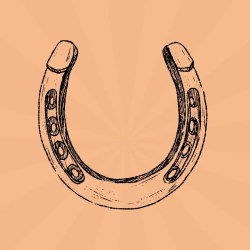“Control is all about my needs, my ego, and my desire to feel like the center of my environment. I wish to impose my will on everyone around me, and expect them to fall in line with how I believe things should be… we should instead be striving for influence.” – Die Empty
I’ll admit that as a parent, one of my biggest challenges is letting my children make mistakes. Instead, I want to swoop in and help them do everything right the first time. Sometimes this is for my own convenience. (Honestly, I don’t want to have to wait for them to try something five times.) Of course, I know this is not good. In order to grow, children have to make a lot of mistakes, and learn their limits. They have to become comfortable with uncertainty, and understand that there is sometimes pain on the other side of effort.
In different ways, I believe that the same principle applies in organizations. I regularly hear stories of managers grasping tightly to the reins of their team, and closely controlling every aspect of its behavior. They have to approve every decision, manage every client interaction, and oversee every meeting. In the end, these control-freak managers are actually doing much more harm to the team than good.
I believe that in any area of life in which the goal is to multiply your effort over time, you should be attempting to achieve influence, not control.
Influence is leading by vision, but control is leading by sight.
When your goal is to grow your influence over time, you are working toward a long-arc goal, and you’re willing to accept some short-term failure in order to achieve success in the end. When you lead by control, any shortcoming is intolerable, which causes people on your team to adopt a “wait until you tell me what to do” mindset.
Any rules and guidelines should attempt to inform decisions, not to control and tightly restrict them. Your objective is to teach people to think for themselves.
“Simple, clear purpose and principles give rise to complex and intelligent behavior. Complex rules and regulations give rise to simple and stupid behavior.” – Dee Hock, founder of VISA
Influence is situation agnostic, but control is situation specific.
On a related note, leading with influence means that people will learn principles that they can apply broadly to any number of similar circumstances. Control is always situation specific, because the objective is to ensure that behavior in a given circumstance is acceptable. Again, this will train people to look to you for answers rather than training them to be resourceful. Influencers teach principles; control freaks deal in absolutes.
Influence is about care, but control is about self-interest.
When you genuinely care about someone, you want to do your best to ensure their continued success even when they are no longer under your leadership. You want them to learn to take on increasing amounts of responsibility and to grow in their own influence. Control, one the other hand, is all about ensuring that they don’t embarrass you or stain your record in the here and now. You just want to ensure that they don’t mess everything up, regardless of whether they learn anything they can carry forward.
“I start with the premise that the function of leadership is to produce more leaders, not more followers.” – Ralph Nader
Influence is about spreading praise, but control is about claiming credit.
When you lead by influence, you will dilute credit for any given initiative. The team gets acclaim for any successes. Control is ultimately about putting yourself at the center of everything, which means that you believe that you are the only person capable of making the project successful.
“It’s amazing how much you can accomplish if you do not care who gets the credit.”
– Harry S. Truman
Controlling behavior never leads to results beyond your own grasp. However, when you are able to achieve influence, you multiply your efforts and reproduce your values and principles in the lives of others.
Aim for influence, not control.
[Tweet “Leaders should aim for influence, not control.”]

















Amen!
This article hit home. I was starting to slide back into controlling. Great reminder.
Great post! I have taken and adapted your post to focus on teachers and classrooms or learning environments. Teachers are a unique type of leaders who should be listening to your message. You can see the adapted post at http://www.harapnuik.org/?p=6537 Trust that this adaptation is acceptable. Once again great post!